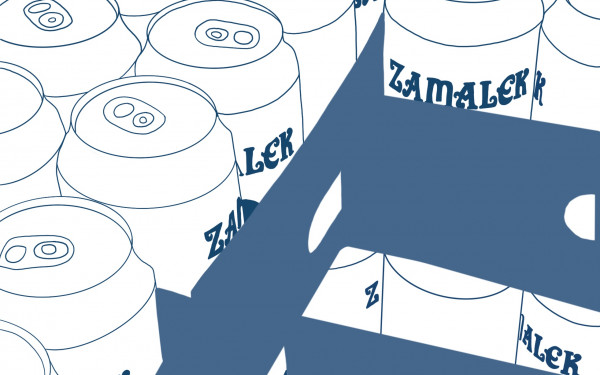Does WikiLeaks Deserve its Nobel Peace Prize Nomination?
You Can’t Escape Progress
Revolutionary Resource Deserves to Win
It feels strange that the biggest force for peace and transparency in the world is not a person, but a website.
But that’s where we are now and it represents real progress.
Despite the massive publicity surrounding the Nobel Peace Prize, traditionally the award has been something of a popularity contest for leaders of Western institutions. Previous winners like Henry Kissinger and, yes, Barack Obama, have been questionable for the prize.
Kissinger oversaw one of the most vicious and brutal wars of aggression in human history, and Obama oversaw the escalation of two major wars and a further increase to the unbelievably bloated military budget of his country, already the most expensive and technologically advanced fighting force in human history.
In comparison, a website doesn’t seem like such a bad idea—although Julian Assange was a little miffed that he was not offered the award personally. WikiLeaks, despite having received lukewarm treatment from even the liberal media on this side of the pond, has provided an unprecedented resource for truthfully examining the decisions and actions of various governments.
In this country, WikiLeaks is seen largely as a novelty. In a liberal democracy, the potential of WikiLeaks is basically to uncover certain relatively benign faux pas made by our elected officials.
However, in the third world, WikiLeaks has been truly revolutionary. In Tunisia, WikiLeaks cables detailing the full extent of the corruption within their regime was a factor leading to the ousting of President Zine El Abidine Ben Ali. Egypt is currently undergoing a similar revolution due to the dissemination of similar information about its own government. Meanwhile, many other Middle Eastern countries sit on the precipice, waiting for the push that another successful revolution or batch of cables could potentially provide.
Now, compare this to the civil rights history of a guy like Kissinger. He oversaw the massacre of a million or more Vietnamese citizens and the utter destruction of much of their land during his time as one of the leaders of U.S foreign policy. Despite unprecedented popular uprising against the war, Kissinger practiced a bit of revisionist history after the fact, stating, “The Vietnam War required us to emphasize the national interest rather than abstract principles. […] What President Nixon and I tried to do was unnatural. And that is why we didn’t make it.” It’s hard to think of a deeper mark on the Prize’s history than Kissinger and it’s hard to find a better justification for giving the prize to a website.
Another more popular U.S. President-turned-Nobel Laureate, Jimmy Carter turned down a proposal to provide aid to Vietnam to rebuild their country. After the United States had basically laid waste to an entire corner of the globe and much of its civilian population, Carter had the gall to justify his decision by saying that “the destruction was mutual.”
Even our beloved Barack, who I do believe is at the very least the lesser of two—or, in this case, three—evils, won a Nobel Prize after escalating both the Iraq and Afghanistan Wars and augmenting the use of unmanned attack drones which have terrorized the civilian populations of these countries. All this after promising to completely pull out of Iraq and running on a platform of being one of the few Democrats who had the stones to vote “No” to the war in the first place.
Finally, to those who think giving the award to a website is a copout, similar Prizes have been given out in the past, including one to U.N. Peacekeeping Forces in 1988 and another to International Physicians for the Prevention of Nuclear War in 1985. Rather than give the award to yet another timid politician who has caused more harm than he prevented, this year the award should go to a true revolutionary.
The ‘Piss-Off-The-Usa’ Award
Wikileaks Nomination Follows the Trend
The Nobel Peace Prize is among the greatest honours that can have bestowed on a person. The Peace Prize transcends borders, religion and race. It is meant to recognize those who have worked for the betterment of humanity itself, the most inspirational among the nearly 7 billion people on this planet.
Or at least, that’s the theory.
There’s been a disturbing trend in the past decade, one that can be traced back to the presidency of George W. Bush. The Nobel Peace Prize has, in a way, become the “Piss-Off-the-United-States” Prize.
That’s not to say that the prize has not been awarded to worthy people. Liu Xiaobo, last year’s recipient, has spent a lifetime pushing for human rights in China, and has spent the last two years in prison for his efforts. Iranian lawyer and human rights activist Shirin Ebadi, the 2003 winner, has struggled tirelessly against the oppressive theocratic regime of her home country despite threats against her life.
Mixed in with those who deserve the recognition have been a few notable exceptions. Two years ago, Barack Obama was given the prize despite having been in office for less than a year. The Nobel Committee cited “his extraordinary efforts to strengthen international diplomacy and cooperation between peoples” as justification for his win. Translation: he won for not being George W. Bush.In 2002, the award went to former American president Jimmy Carter. Carter hadn’t done much notable that year, except for visiting Cuba, where he called on Fidel Castro to improve human rights conditions. Admirable, but hardly earth shattering.
So, why Carter? He was given the award in the months leading up to the 2003 invasion of Iraq. Carter, who became a figurehead for leftists after leaving office, was widely seen as the anti-Bush. It can hardly be called coincidence that he was given one of the most prestigious and high profile awards in the world while the man who was seen as his opposite made a public case for a much-maligned war.
As if that wasn’t enough, five years later, the Peace Prize again went to an anti-Bush figure. Al Gore, the man Bush defeated in the 2002 presidential election, was given the 2008 award essentially for making a movie that was basically a global warming PowerPoint presentation. Again, admirable work, but in the same league as Nelson Mandela? Hardly.The nomination of WikiLeaks falls into this same category. Despite Obama being in office instead of Bush, the U.S. is still in the midst of two internationally unpopular wars, and still stands accused of imperialist policies. WikiLeaks has publicly embarrassed the U.S with thousands of leaked documents about operations in Afghanistan and Iraq, not to mention State Department cables.
If the Nobel Committee really wants to try something new, here’s a suggestion: give the award to the people who are actually fighting for human rights and democracy. Give it to the people of Tunisia and Egypt, who have altered the political order in a tangible, real way.Has WikiLeaks increased transparency and the way we think of information from the government? Yes. Has it changed politics and furthered human rights? Hardly. Does it deserve the Nobel Peace Prize? No.
This article originally appeared in Volume 31, Issue 22, published February 8, 2011.

__900_640_90.jpg)


_600_375_90_s_c1.jpg)
_600_375_90_s_c1.jpg)

